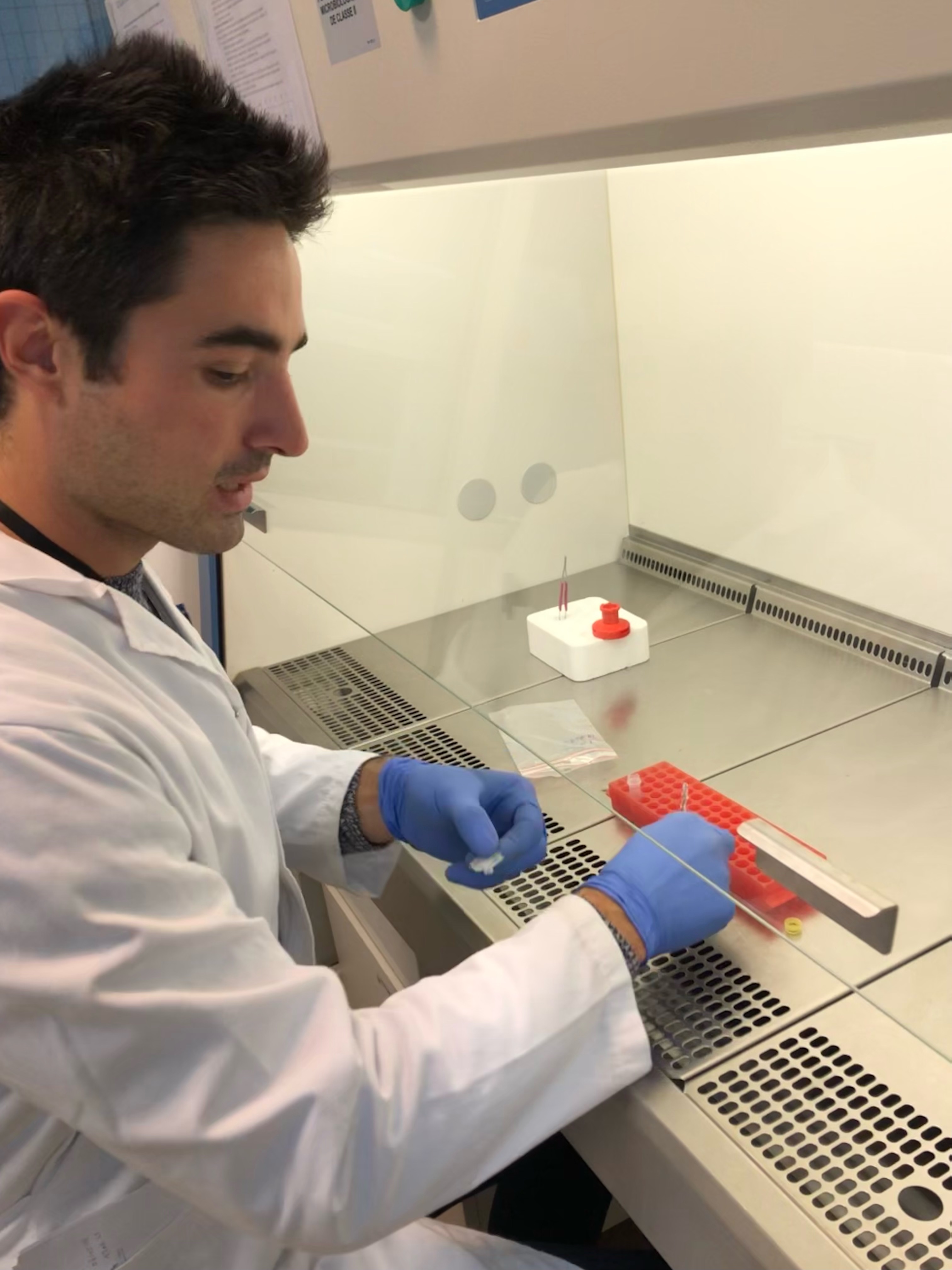PhD student receives EMBO Scientific Exchange Grant
Arnaud Jéglot from Department of Agroecology at Aarhus University has been awarded a Scientific Exchange Grant by the European Molecular Biology Organization (EMBO) to visit the lab of Professor Timothy Vogel in Lyon in France. Here he will gain new knowledge to continue on resolving cold weather agricultural drainage water treatment with woodchip bioreactors.

Intensive agricultural cropping systems have high risk of nitrate leaching to water bodies, which can endanger ecosystem quality and functions. One way to mitigate nitrate pollution from agricultural drainage water is woodchip bioreactors. The woodchips function as a filter in constructed wetlands, which collects all the drained water before it enters rivers, lakes or coastal waters. The woodchip filter provides favourable conditions for the biological removal of nitrate, and the efficiency can be as high as 100%, when the conditions are optimal. However, during winter the efficiency can be considerably lower, often less than 20%, due to the cold temperatures. This coincides with the winter season often being the period with the most draining, making it critical for nitrate removal.
“I am working on a project, where we will try to increase nitrate removal efficiency at low temperature in woodchip bioreactors by flooding the system with a cultivated cold-tolerant denitrifying bacteria,” says PhD student Arnaud Jéglot from the Department of Agroecology at Aarhus University.
Going to France to learn metagenomic technologies
As part of his PhD on improving the efficiency of nitrate removal from agricultural drainage water by use of woodchip biofilters, Arnaud Jéglot has been awarded a Scientific Exchange Grant by the European Biology Organization (EMBO) to visit the AMPÈRE laboratory at the “Environmental Microbial Genomics” group at the engineering school at École Centrale de Lyon, which is a part of the Université de Lyon.
“This group has unique expertise in microbial ecology, molecular biology, and environmental engineering which I can use in my research projects and PhD. Professor Timothy Vogel and his group has developed metagenomic technologies to study how microbial communities adapt to perturbed environments,” says Arnaud Jéglot.
At the lab in Lyon, they have more than 40 years of experience within the field. During his scientific exchange, Arnaud Jéglot will focus on metagenomics and metatranscriptomics of microbiomes from pilot-scale woodchip bioreactors, which are operated at the Department of Agroecology at AU Foulum in Denmark.
Collaboration benefits all parties
Arnaud Jéglot will gain a experience and knowledge during his exchange, which will benefit his future scientific work, when he returns to Denmark. But the stay also benefits the group in Lyon.
“The group here in Lyon has already successfully applied molecular methods to study pollutant biodegradation and treatment in ecosystems such as rivers and soil, and the collaboration with me and the Department of Agroecology will extend the expertise to woodchip bioreactors for treatment of nitrate-rich drainage water,” says Arnaud Jéglot.
DNA and RNA
The scientific exchange runs from 4 October to 20 December, and Arnaud Jéglot has already begun his scientific work at the lab in Lyon.
“Currently I am working in the lab to extract DNA and RNA from samples from an experiment, I conducted at AU Foulum in Denmark. The sequencing of the DNA from these samples will provide data on microbial communities’ compositions and abundances in the woodchip bioreactors at the pilot plants. And the sequencing of the RNA will provide evidence of secreted genes, and therefore give indications on microbial actual activity,” say Arnaud Jéglot.
Once he returns to Denmark Arnaud Jéglot will continue working on his PhD-research, where he will be using a lot of what he has learned during his stay at Professor Timothy Vogels laboratory in France.
| Additional information | |
| Funding: | The PhD project by Arnaud Jéglot is funded by Aarhus University, WATEC, Novozymes A/S, and the Ministry of Environment and Food of Denmark (Project no. 33010-NIFA-16-649). |
| Supervisors: | Arnaud Jéglot’s supervisors are Lars Elsgaard and Finn Plauborg from the Department of Agroecology, and Sebastian Reinhold Sørensen and Kirk Schnorr from Novozymes A/S. |
| Contact: | PhD Student Arnaud Jéglot, Department of Agroecology, Aarhus University. Mail: arnaud.jeglot@agro.au.dk |
